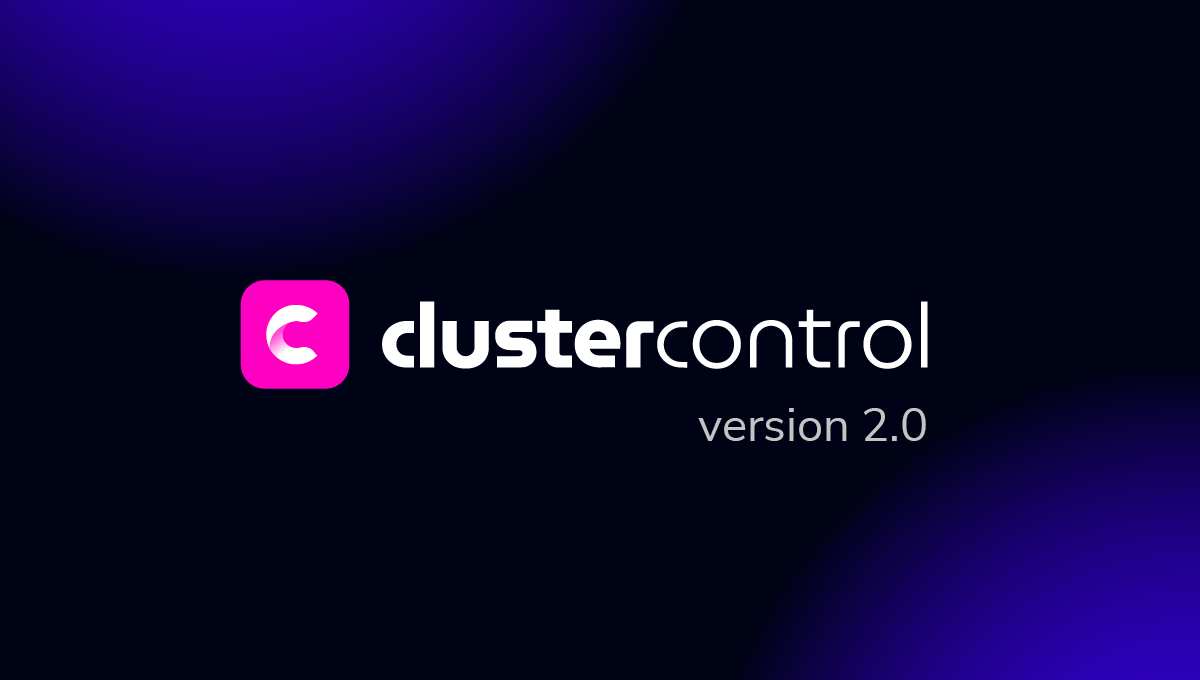blog
MySQL Replication for High Availability


We’re happy to announce that our newly updated whitepaper MySQL Replication for High Availability is now available to download for free!
MySQL Replication enables data from one MySQL database server to be copied automatically to one or more MySQL database servers.
Unfortunately database downtime is often caused by sub-optimal HA setups, manual/prolonged failover times, and manual failover of applications. This technology is common knowledge for DBAs worldwide, but maintaining those high availability setups can sometimes be a challenge.
In this whitepaper, we discuss the latest features in MySQL 5.6, 5.7 & 8.0 as well as show you how to deploy and manage a replication setup. We also show how ClusterControl gives you all the tools you need to ensure your database infrastructure performs at peak proficiency.
Topics included in this whitepaper are …
- What is MySQL Replication?
- Replication Scheme
- Asynchronous Replication
- Semi-Synchronous Replication
- Global Transaction Identifier (GTID)
- Replication in MySQL 5.5 and Earlier
- How GTID Solves the Problem
- MariaDB GTID vs MySQL GTID
- Multi-Threaded Slave
- Crash-Safe Slave
- Group Commit
- Replication Scheme
- Topology for MySQL Replication
- Master with Slaves (Single Replication)
- Master with Relay Slaves (Chain Replication)
- Master with Active Master (Circular Replication)
- Master with Backup Master (Multiple Replication)
- Multiple Masters to Single Slave (Multi-Source Replication)
- Galera with Replication Slave (Hybrid Replication)
- Deploying a MySQL Replication Setup
- General and SSH Settings
- Define the MySQL Servers
- Define Topology
- Scaling Out
- Connecting Application to the Replication Setup
- Application Connector
- Fabric-Aware Connector
- Reverse Proxy/Load Balancer
- MariaDB MaxScale
- ProxySQL
- HAProxy (Master-Slave Replication)
- Failover with ClusterControl
- Automatic Failover of Master
- Whitelists and Blacklists
- Manual Failover of Master
- Failure of a Slave
- Pre and Post-Failover Scripts
- When Hooks Can Be Useful?
- Service Discovery
- Proxy Reconfiguration
- Additional Logging
- When Hooks Can Be Useful?
- Automatic Failover of Master
- Operations – Managing Your MySQL Replication Setup
- Show Replication Status
- Start/Stop Replication
- Promote Slave
- Rebuild Replication Slave
- Backup
- Restore
- Software Upgrade
- Configuration Changes
- Schema Changes
- Topology Changes
- Issues and Troubleshooting
- Replication Status
- Replication Lag
- Data Drifting
- Errant Transaction
- Corrupted Slave
- Recommendations
Download the whitepaper today!
About ClusterControl
ClusterControl is the all-inclusive open source database management system for users with mixed environments that removes the need for multiple management tools. ClusterControl provides advanced deployment, management, monitoring, and scaling functionality to get your MySQL, MongoDB, and PostgreSQL databases up-and-running using proven methodologies that you can depend on to work. At the core of ClusterControl is it’s automation functionality that lets you automate many of the database tasks you have to perform regularly like deploying new databases, adding and scaling new nodes, running backups and upgrades, and more.
To learn more about ClusterControl click here.
About Severalnines
Severalnines provides automation and management software for database clusters. We help companies deploy their databases in any environment, and manage all operational aspects to achieve high-scale availability.
Severalnines’ products are used by developers and administrators of all skills levels to provide the full ‘deploy, manage, monitor, scale’ database cycle, thus freeing them from the complexity and learning curves that are typically associated with highly available database clusters. Severalnines is often called the “anti-startup” as it is entirely self-funded by its founders. The company has enabled over 32,000 deployments to date via its popular product ClusterControl. Currently counting BT, Orange, Cisco, CNRS, Technicolor, AVG, Ping Identity and Paytrail as customers. Severalnines is a private company headquartered in Stockholm, Sweden with offices in Singapore, Japan and the United States. To see who is using Severalnines today visit, https://staging1.severalnines.com/company.



